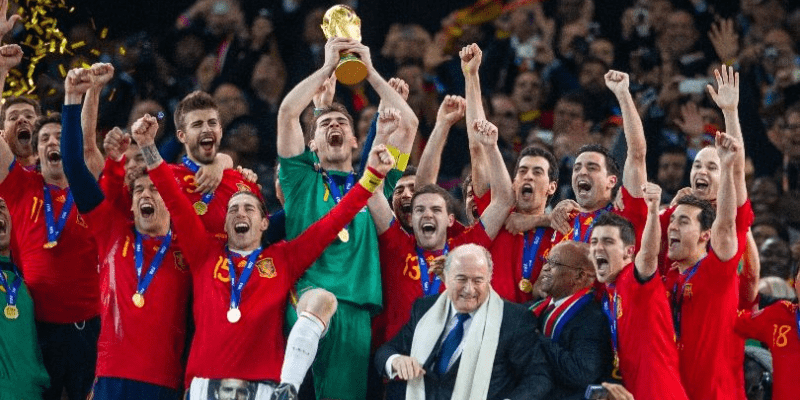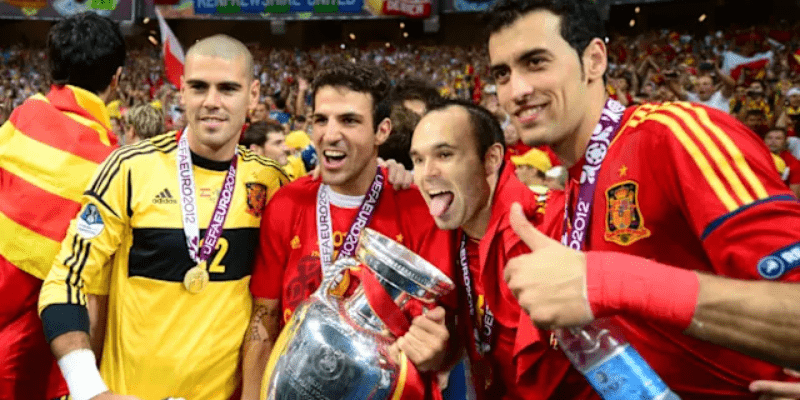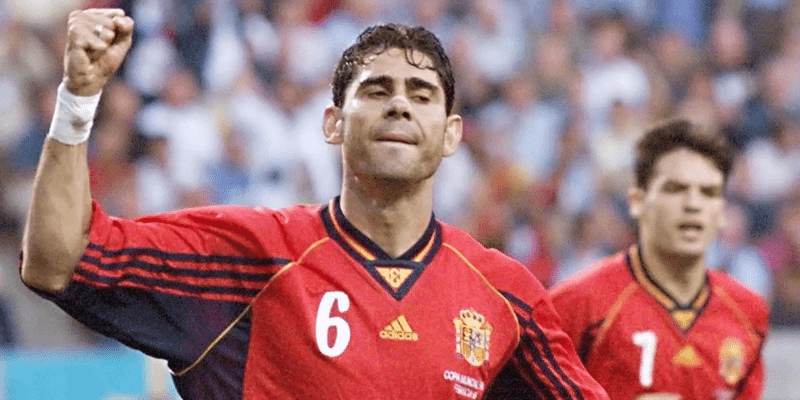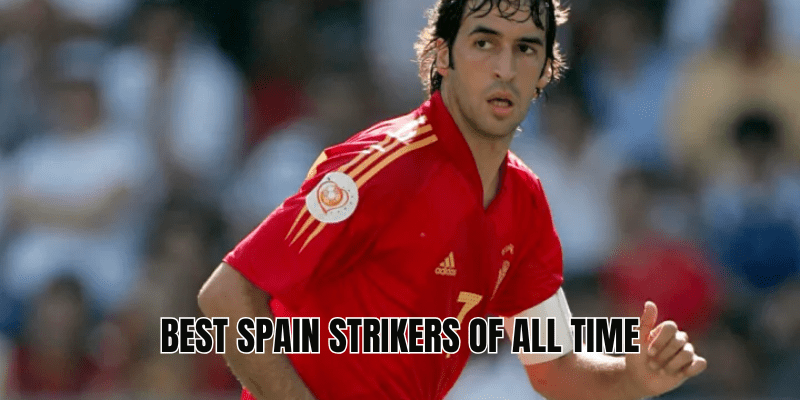From the dusty terraces of San Mamés to the bright lights of World Cup finals, Spain has produced an array of forward talents whose names are woven into football folklore. But who truly belongs among the best Spain strikers of all time? VulcanKick invites you on a journey through eras, counting goals, legends, and defining moments. Get ready to explore the maestros of the final third — the finishers, the foxes, the heartbreakers — who made history with La Roja.
What Makes a “Great” Spanish Striker?

Before unveiling our list, it’s worth pausing: what criteria separate mere scorers from all-time greats? For VulcanKick, we prioritized a blend of:
- International impact
- Club achievements in Spain and abroad
- Longevity and consistency across careers
- Legacy and influence on younger generations
Spain’s style often emphasized technical play and team cohesion, so the standout strikers typically combined instinct, intelligence, and finishing flair.
Below, VulcanKick presents a selection of strikers who transcend eras — from vintage Basque forwards to figures of Spain’s golden generation.
The Pioneers: Zarra and Lángara
Before the global spectacle of modern football, these two Basque forwards blazed trails that still echo in Spanish lore.
Telmo Zarra (1921–2006)
A name forever etched in Spanish football history, Telmo Zarra was Athletic Bilbao’s lethal forward and Spain’s mid-century icon. Over 15 seasons at Bilbao, he scored 251 La Liga goals, a mark that remained the league record for over six decades.
For Spain, he delivered 20 goals in 20 appearances — including the storied “Gol de Zarra” at the 1950 World Cup that sent Spain into the semifinal round.
Zarra also won the Pichichi Trophy (La Liga’s top scorer) six times, remaining for generations the benchmark for domestic consistency.
His blend of aerial ability, positioning and composure made him the prototype for Spanish centre-forwards.
Isidro Lángara (1912–1992)
If Zarra laid the foundation, Isidro Lángara built the skyscraper. A ferocious goalscorer, Lángara holds one of the highest goals-per-game ratios in Spain. In just 12 appearances for La Roja, he netted 17 goals, a strike rate unmatched in Spain’s history.
At club level, he pioneered goalscoring excellence. He led Oviedo to prominence, claimed Pichichi honors three times before the Spanish Civil War, and later lit up leagues in Mexico and Argentina, becoming the only Spaniard to top scoring charts on three different continents.
His legacy looms large — a symbol of Spanish scoring ambition even amid political storms.
The Modern Icons: Villa, Torres, Raúl, Morata

The 21st century belongs to them. They carried Spain from underdog to world champion — in front of, or behind, the ball.
David Villa
At the top of the Spain all-time scoring charts is David Villa with 59 goals in 98 caps.
He was critical in Spain’s golden era: his goals powered Euro 2008, the 2010 World Cup, and Euro 2012 conquests. He scored in all three tournaments, including delivering in knockout matches.
Villa’s club career spanned La Liga, MLS, and beyond; at Valencia and Barcelona he mixed speed, finishing, and movement. He was the kind of striker who read defenses and struck in bursts.
Fernando Torres
Nicknamed “El Niño,” Fernando Torres arrived as a teenage sensation and became Spain’s third highest scorer
Torres shined at club level with Atlético Madrid, Liverpool, and Chelsea. He won the Euro 2008 Final on a sublime header. While injuries curtailed some peak years, his moments cemented his legacy.
Raúl González
Though more associated with midfield and the “second striker” role, Raúl merits discussion. He scored 44 goals for Spain in 102 appearances.
At Real Madrid, Raúl won multiple Champions Leagues and carried a footballing gravitas. His movement, link play, and finishing made him flexible — part creator, part finisher. In debates of “pure striker,” he’s a hybrid, but one whose legacy looms.
Álvaro Morata
Still active, Morata has already climbed to fourth on Spain’s all-time list with 36 goals
He’s featured in multiple major tournaments, scoring in Euros and World Cups. Critics often levy inconsistency against him — yet he continuously steps up in big matches (e.g. qualifiers, knockout stages).
His career includes spells at Real Madrid, Juventus, Chelsea, Atlético Madrid — he combines aerial threat, work rate, and experience balancing pressure.
Honorable Mentions & Emerging Names

A great list must nod to others. Among them:
- Fernando Morientes: Scored 27 goals in47 caps. Excellent record at Real Madrid and Monaco, strong in Champions League play.
- Emilio Butragueño: A key figure in the 1980s – graceful, intelligent forward who scored 26 times in 69 caps.
- Julio Salinas: Notable in Spain’s squads.
- Paco Alcácer, Iago Aspas, Joselu: More contemporary options who had good spells but not yet at all-time elite level.
On the horizon, Lamine Yamal, though not a striker, shows the technical DNA — his generation may spawn future forwards worthy of this list.
Ranking the Best Spain Strikers: Summary Table
| Rank | Striker | Spain Goals / Caps | Signature Strength |
| 1 | David Villa | 59 / 98 | Clinical in tournaments, consistency |
| 2 | Fernando Torres | 38 / 110 | Big match impulse, legacy |
| 3 | Telmo Zarra | 20 / 20 | Domestic dominance, historic icon |
| 4 | Isidro Lángara | 17 / 12 | Highest ratio, pioneer across continents |
| 5 | Raúl González | 44 / 102 | Versatility, footballing stature |
| 6 | Álvaro Morata | 36 / 87+ | Modern reliability, pressure goals |
This is fluid — feedback. But these names belong near the summit of Spain’s attacking heritage.
Final Thoughts
The lineage of Spain’s attacking excellence is a rich tapestry: from Zarra’s iron boots to Villa’s surgical darting runs and Torres’ inspired finishes. The best Spain strikers of all time are not just measured by tally, but by moments — defining goals, national glories, and the inspiration they leave behind.
VulcanKick hopes this exploration invigorates your debates, reminds you of the magic in every strike, and deepens your attachment to La Roja’s storied past. If you’d like breakdowns by era, by club, or predictions for future Spanish forwards, stay with us — the story continues.
